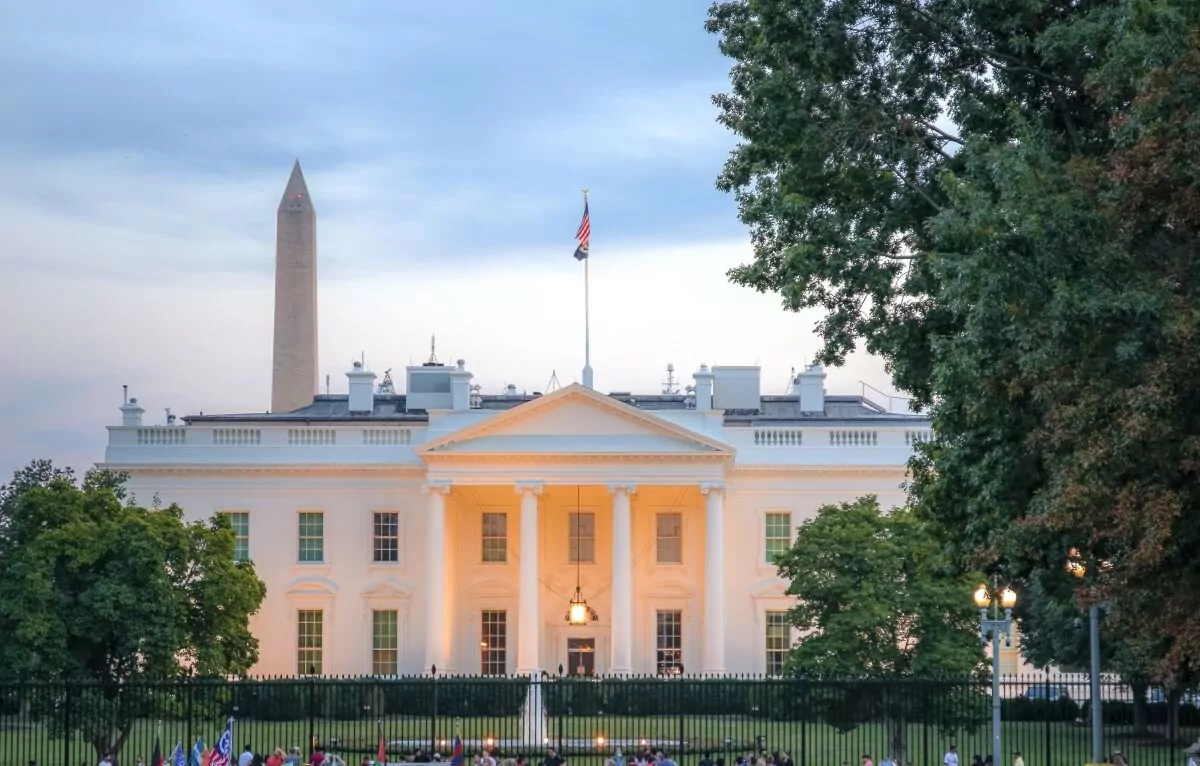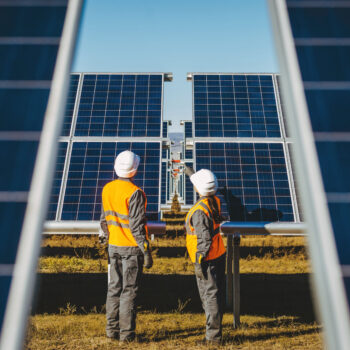- The results of the U.S. midterm elections, which may not be fully known for days or weeks, will determine which party controls the U.S. Congress for the next two years.
- Current polling indicates that the Republicans are likely to win a majority of the seats in the House of Representatives and take back control.
- There are a handful of Senate races – Arizona, Georgia, Nevada, Ohio, Pennsylvania, and Wisconsin – that are too close to call and will determine control of the Senate.
Story
The U.S. has made a lot of progress on climate in the last two years. The three bills passed by this Congress —the bipartisan infrastructure law, the CHIPS and Science Act, and especially the Inflation Reduction Act (IRA)—cement U.S. emissions reduction as a core goal of national economic policy. This can’t be undone.
While some congressional Republicans may obstruct or aggressively conduct oversight to slow climate action progress and sap energy, they cannot unwind the economic transformation underway. There are economic and political reasons to think there are opportunities for bipartisan cooperation in the 118th Congress, regardless of the make-up.
It is in the U.S.’ economic interest to invest in the clean economy. Republicans supported the bipartisan infrastructure law and the CHIPS and Science Act, both of which included clean energy provisions critical to competing with China. The next Congress should build on this progress. By aggressively investing in innovation and manufacturing of clean technology, the U.S. can contest China’s leadership in clean technology and strengthen its position in the fastest growing parts of the clean economy.
Furthermore, as of October 11, the United States has experienced 15 weather events/climate-induced disasters in 2022, each with losses exceeding $1 billion. Banks, businesses, and insurance companies in the real economy cannot sustain these losses indefinitely and will demand action from Congress.
It is in Republicans’ political interest to act on climate. The IRA’s powerful economic incentives benefit Republican strongholds and rural areas. Nine of the 10 congressional districts with the most planned or operating renewable capacity are held by Republicans. Trying to undermine implementation of the IRA, could prove problematic in district, where concerns over energy prices and the economy are top of mind.
Moreover, the American public is supportive of government climate action and clean energy production. Polling from Yale University in 2021 shows that 61% of polled Americans believe that Congress should be doing more to address climate change. Even if Republicans do well in the midterms, for a long-term majority GOP must feature climate change and environmental issues as a part of the party platform to reach younger voters.
Quotes
Claire Healy, Head of E3G’s Washington DC Office, said:
“There are the laws of politics and the laws of physics. Regardless of the results of the midterm elections, the underlying trends are clear. The planet is warming, and the global economy is moving towards net zero.
Despair doesn’t help us decarbonize. It may not say ‘climate’ on the tin but there will be areas where we can work with this Congress to cut emissions. It may not be as fast and furious as we’d like but this is the future direction of travel, despite political theatre. To improve US economic competitiveness, build jobs and industries for American workers, and respond to growing alarm among constituents in red and blue states, Congress will have to act.
And there is still work the Biden Administration can do with the tools they have at their disposal. For example, it can push reform at the World Bank to unlock billions more international investment; issue new EPA regulations and endorse new SEC rules for faster decarbonization; and work with US states and cities to build the clean economy. We always have our agency, and we will be pushing for all the above.”
Alden Meyer, E3G Senior Associate, said:
“Republican control of one or both bodies of the next Congress will not reverse the drive towards a clean energy economy that has been accelerated by the legislative actions taken by the current Congress – especially passage of the Inflation Reduction Act. The Biden administration retains the authority to supplement these historic investments in renewables and other climate solutions with regulatory and other executive actions, as will be needed to meet the U.S. emissions reductions commitments under the Paris Agreement. President Biden will also continue to center climate change in America’s foreign and national security policy and to conduct forward-looking diplomacy on climate and clean energy cooperation with other countries.
But the push to increase U.S. financial support for actions by developing countries to decarbonize their economies and to cope with the increasingly devastating impacts of climate change will hit a wall if Republicans control the House and/or Senate in the next Congress, given strong Republican opposition to such funding. Yesterday’s results increase the urgency of Democratic leaders and appropriators taking action to approve President Biden’s $11.4 billion request for these programs before the current session of Congress ends next month.”
Alexandra Hackbarth, E3G Senior Policy Advisor, said:
“Republicans and Democrats are concerned by China’s growing influence and its intent to reshape the international order to serve its national interests. But challenging China’s influence and tackling the climate crisis must be part of the same conversation. The U.S. cannot build the coalitions needed to outcompete China if it neglects climate change, a top priority to many of the countries the U.S. seeks to build partnerships with.
The bipartisan infrastructure law, CHIPS and Science Act, and the IRA expanded the U.S. toolbox for competing with China and addressing climate change, but the U.S. cannot stop there. It must continue to reduce emissions at home and abroad by aggressively pursuing an edge in the sectors and industries at the heart of the global energy transition. It is in the U.S.’ national interest to do more on climate to compete with China abroad.”
Available for comment
The following experts are available for comment, please reach out directly:
Claire Healy, U.S. politics, global institutions
+1 202 420 0628, claire.healy@e3g.org
Alden Meyer, COP27, mitigation ambition, climate finance and climate diplomacy
+1 202 378 8619, alden.meyer@e3g.org
Alexandra Hackbarth, U.S. politics, geopolitics, national security, climate foreign policy alexandra.hackbarth@e3g.org
Notes to Editors
- E3G is an independent climate change think tank with a global outlook. We work on the frontier of the climate landscape, tackling the barriers and advancing the solutions to a safe climate. Our goal is to translate climate politics, economics and policies into action. About – E3G
- To receive updates and analysis from COP27 via E3G’s daily media WhatsApp broadcast, register here.
- For a full list of E3G’s experts covering COP27 see our media advisory: What to expect from COP27 and the G20 Summit – E3G
- For further enquiries please contact our media team at press@e3g.org or +44 (0) 7783 787 863.


